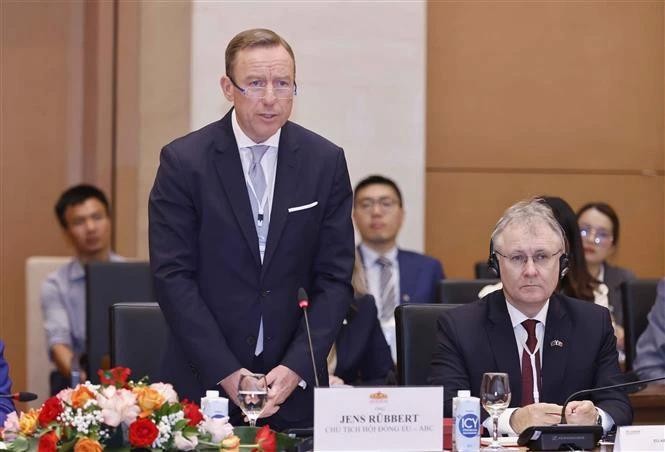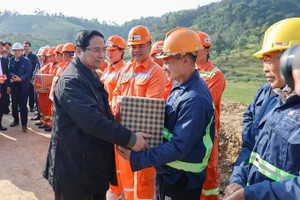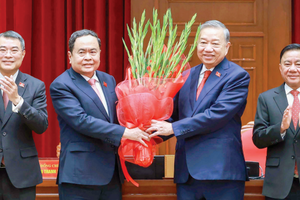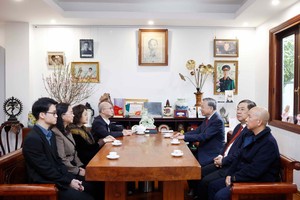
National Assembly Vice Chairman Nguyen Duc Hai has praised European businesses in general, the EU-ASEAN Business Council (EU-ABC), and the European Chamber of Commerce in Vietnam (EuroCham Vietnam) for their positive contributions to Vietnam's socio-economic development and the Vietnam-EU comprehensive partnership and cooperation.
Hosting a reception in Hanoi on June 26 for a delegation led by EU-ABC Chairman Jens Rübbert and EuroCham Vietnam Chairman Dominik Meichle, Hai affirmed that the Vietnamese NA and Government always accompany and offer all possible support to firms to do business successfully and sustainably in Vietnam.
Looking ahead, he encouraged increased investment and trade under the EU-Vietnam Free Trade Agreement (EVFTA) and other bilateral agreements. He specifically urged the EU to expedite the ratification of the EU-Vietnam Investment Protection Agreement (EVIPA) by all member states.
Hai also called for the European Commission’s early removal of the "yellow card" warning against Vietnamese seafood exports, taking into account Vietnam's efforts to combat illegal, unreported and unregulated (IUU) fishing, the challenges and differences in fisheries management capacity and challenges faced by Vietnamese fishermen.
The NA Vice Chairman affirmed Vietnam's commitment to creating a business-friendly environment and continuously improving its legal framework to align with international standards. He highlighted the openness to feedback from European businesses on enhancing the Vietnam-EU relationship, particularly in economic and trade spheres.
EU-ABC Chairman Jens Rübbert expressed the interest of European businesses in investing and doing business across various sectors in Vietnam, and affirmed the EU-ABC's support for EVIPA's ratification by EU member parliaments.
EuroCham Vietnam Chairman Meichle echoed the sentiment, emphasising their commitment to continued collaboration with Vietnamese authorities for future development.
Discussions also covered Vietnam's priorities in fiscal policy, public financial management, and business environment improvement. Attracting foreign investment and incorporating gender-responsive budgeting methods were also on the agenda.
























